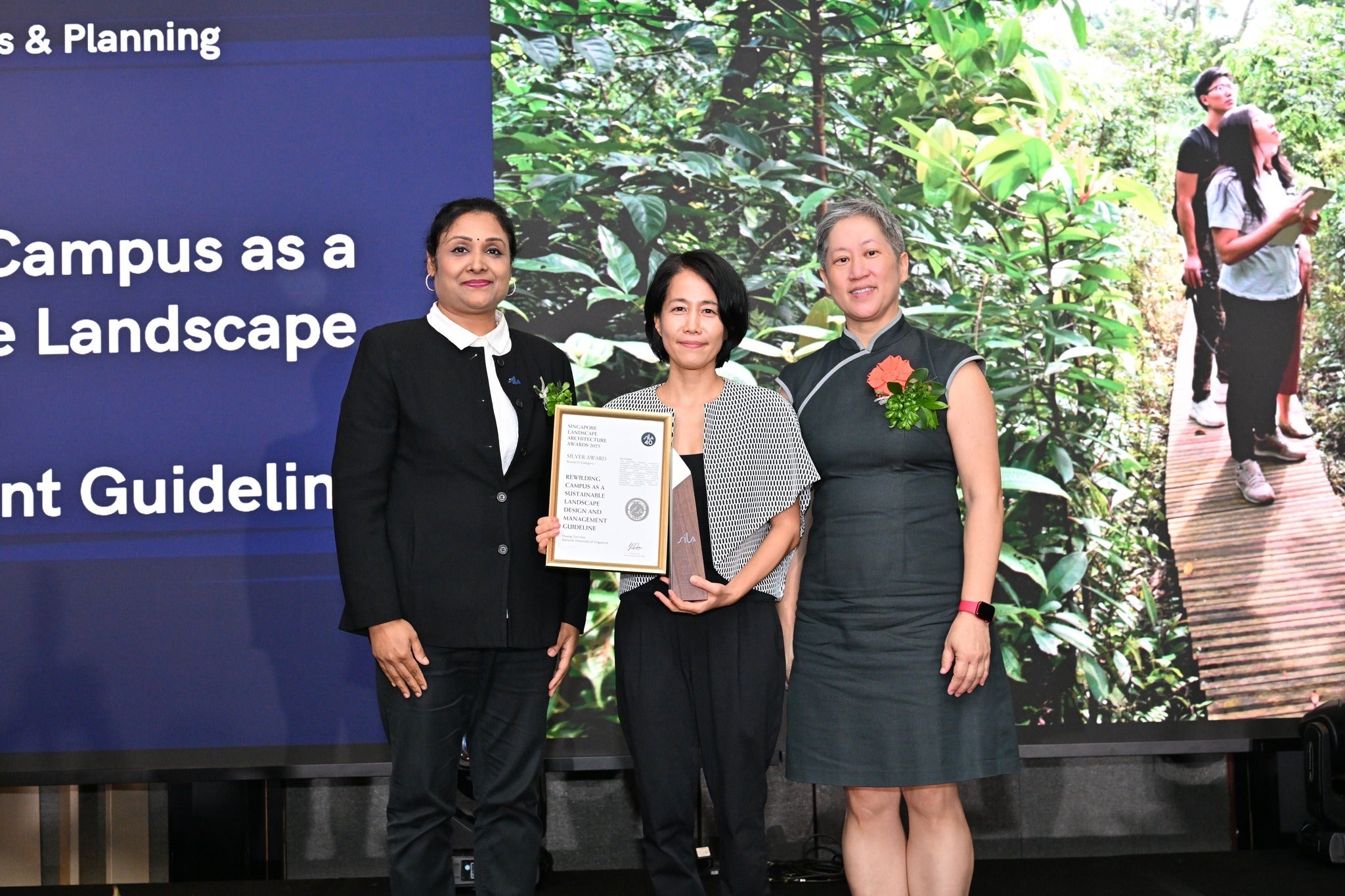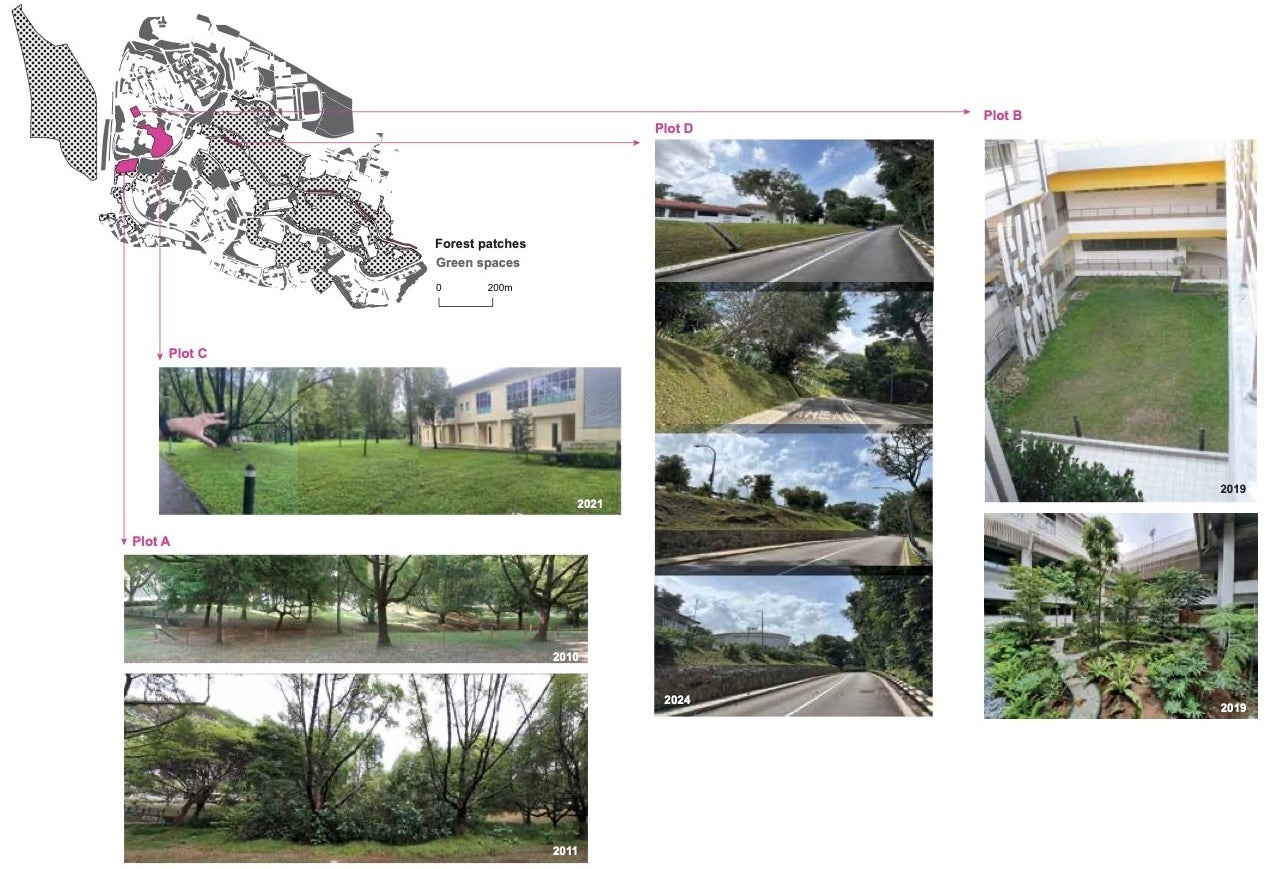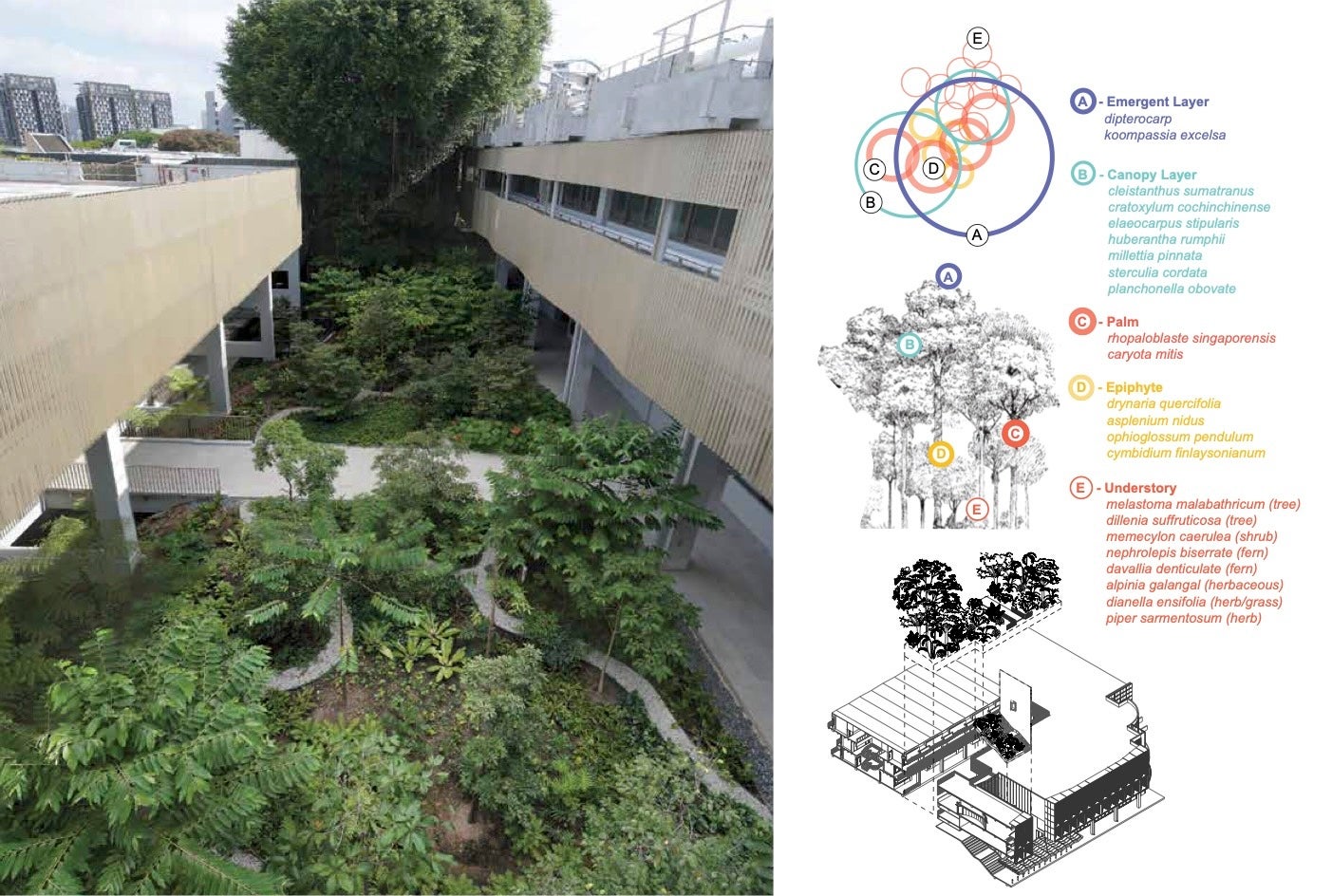Assoc Prof Hwang Yun Hye Wins Silver at SLAA for Campus Rewilding Research

Congratulations to Assoc Prof Hwang Yun Hye on winning Silver in the Research, Analysis & Planning category at this year’s Singapore Landscape Architecture Awards (SLAA). Her submission, “Rewilding Campus as a Sustainable Landscape Design and Management Guideline,” establishes ecologically sustainable design and management guidelines grounded in a decade of research. The work examines how rewilding can increase diverse native flora and fauna on a university campus, its environmental benefits, and the impact of active stakeholder engagement. The project spans four plots across the campus, each differing in size, site conditions, and construction timelines.

LOCATIONS OF RESEARCH PLOTS A, B, C, AND D WITHIN THE CAMPUS
By suspending regular mowing, manicured lawns were allowed to naturalise into gardens. Each plot received site-specific inputs and maintenance: minimal intervention in Plots A and D, strategic planting in Plot B, and selective maintenance in Plot C. Plot B was initially seeded with young native forest species, while construction for Plots A, C, and D was minimal—limited to a 25 m wooden walkway, recycled concrete block paving, and signage. Ongoing maintenance was supported by the university management team. Together, these plots function as a living lab for environmental studies and education, with multidisciplinary efforts dedicated to monitoring, upkeep, and surveys of landscape change, including floral and faunal diversity, microclimate, soil quality, public perception, and visual analysis.
Drawing on these data and collaborations, the research team developed step-by-step landscape design and management guidelines for implementing rewilding in other institutional green spaces—particularly those integrated with co-curricular activities and academic curricula in primary and secondary schools across Singapore.

A BIRD’S-EYE VIEW OF PLOT B SHOWS HOW THE EXISTING LARGE FIG TREE AND NEWLY PLANTED, MULTI-TIERED NATIVE FOREST SPECIES ARE VISUALLY CONNECTED, FACILITATING ECOLOGICAL FLOWS WITHIN AND BEYOND THE CAMPUS.
The campus rewilding project establishes a resilient framework for alternative green spaces in urban settings. By converting manicured lawns into vibrant ecosystems, it boosts biodiversity, mitigates climate-change impacts, and enhances educational opportunities. This initiative fosters environmental stewardship and appreciation, demonstrating rewilding’s potential to redefine urban green spaces. It provides a model for other institutions seeking to contain ecological and cultural integrity, highlighting the importance of integrating natural processes with thoughtful human intervention to achieve a sustainable urban landscape.
More details on Assoc Prof Hwang’s work are available at Urban Wild Lab.
“The Rewilding Campus transforms traditional green spaces into thriving ecological corridors through site-specific strategies and long-term research. With strong public engagement, interdisciplinary collaboration, and clear management guidelines, it fosters ecosystem resilience, cultural storytelling, and social sustainability—offering a replicable model for sustainable institutional landscapes and education.” – Jury Citation
𝗦𝗶𝗻𝗴𝗮𝗽𝗼𝗿𝗲 𝗟𝗮𝗻𝗱𝘀𝗰𝗮𝗽𝗲 𝗔𝗿𝗰𝗵𝗶𝘁𝗲𝗰𝘁𝘂𝗿𝗲 𝗔𝘄𝗮𝗿𝗱 𝟮𝟬𝟮𝟱
The Singapore Landscape Architecture Awards aim to honour and showcase the best work by landscape architects and to promote design innovation across disciplines. The Research, Analysis & Planning category is open to SILA Recognised Practices as well as all SILA Full and Graduate members, and entries are not required to be built or implemented. This category acknowledges the wide scope of professional and academic activities within landscape architecture, including academic research; analysis; masterplans; urban, suburban, rural, or regional planning; strategic design and guiding policy documents; visual assessments for urban development; environmental planning; natural resource protection; and historic preservation planning.